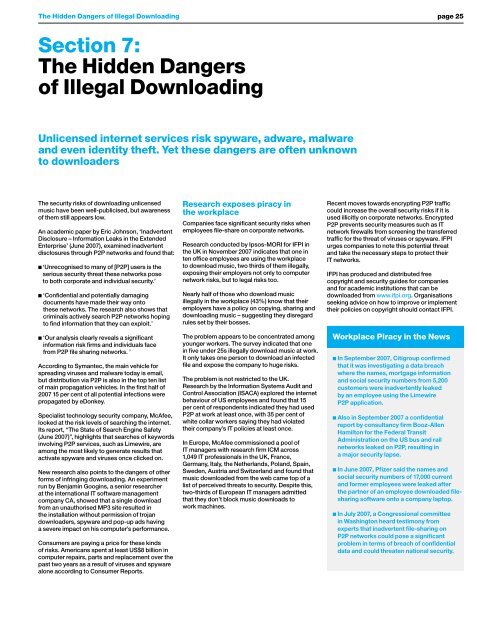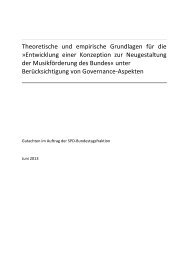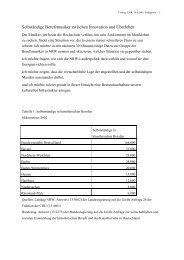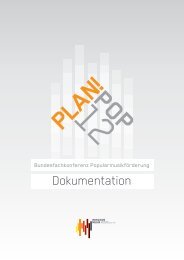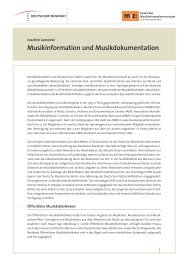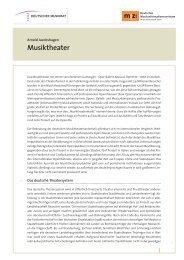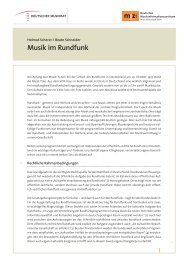You also want an ePaper? Increase the reach of your titles
YUMPU automatically turns print PDFs into web optimized ePapers that Google loves.
The Hidden Dangers of Illegal Downloading<br />
Section 7:<br />
The Hidden Dangers<br />
of Illegal Downloading<br />
Unlicensed internet services risk spyware, adware, malware<br />
and even identity theft. Yet these dangers are often unknown<br />
to downloaders<br />
The security risks of downloading unlicensed<br />
music have been well-publicised, but awareness<br />
of them still appears low.<br />
An academic paper by Eric Johnson, ‘Inadvertent<br />
Disclosure – Information Leaks in the Extended<br />
Enterprise’ (June 2007), examined inadvertent<br />
disclosures through P2P networks and found that:<br />
n ‘Unrecognised to many of [P2P] users is the<br />
serious security threat these networks pose<br />
to both corporate and individual security.’<br />
n ‘Confidential and potentially damaging<br />
documents have made their way onto<br />
these networks. The research also shows that<br />
criminals actively search P2P networks hoping<br />
to find information that they can exploit.’<br />
n ‘Our analysis clearly reveals a significant<br />
information risk firms and individuals face<br />
from P2P file sharing networks. ’<br />
According to Symantec, the main vehicle for<br />
spreading viruses and malware today is email,<br />
but distribution via P2P is also in the top ten list<br />
of main propagation vehicles. In the first half of<br />
2007 15 per cent of all potential infections were<br />
propagated by eDonkey.<br />
Specialist technology security company, McAfee,<br />
looked at the risk levels of searching the internet.<br />
Its report, “The State of Search Engine Safety<br />
(June 2007)”, highlights that searches of keywords<br />
involving P2P services, such as Limewire, are<br />
among the most likely to generate results that<br />
activate spyware and viruses once clicked on.<br />
New research also points to the dangers of other<br />
forms of infringing downloading. An experiment<br />
run by Benjamin Googins, a senior researcher<br />
at the international IT software management<br />
company CA, showed that a single download<br />
from an unauthorised MP3 site resulted in<br />
the installation without permission of trojan<br />
downloaders, spyware and pop-up ads having<br />
a severe impact on his computer’s performance.<br />
Consumers are paying a price for these kinds<br />
of risks. Americans spent at least US$8 billion in<br />
computer repairs, parts and replacement over the<br />
past two years as a result of viruses and spyware<br />
alone according to Consumer <strong>Report</strong>s.<br />
Research exposes piracy in<br />
the workplace<br />
Companies face significant security risks when<br />
employees file-share on corporate networks.<br />
Research conducted by Ipsos-MORI for <strong>IFPI</strong> in<br />
the UK in November 2007 indicates that one in<br />
ten office employees are using the workplace<br />
to download music, two thirds of them illegally,<br />
exposing their employers not only to computer<br />
network risks, but to legal risks too.<br />
Nearly half of those who download music<br />
illegally in the workplace (43%) know that their<br />
employers have a policy on copying, sharing and<br />
downloading music – suggesting they disregard<br />
rules set by their bosses.<br />
The problem appears to be concentrated among<br />
younger workers. The survey indicated that one<br />
in five under 25s illegally download music at work.<br />
It only takes one person to download an infected<br />
file and expose the company to huge risks.<br />
The problem is not restricted to the UK.<br />
Research by the Information Systems Audit and<br />
Control Association (ISACA) explored the internet<br />
behaviour of US employees and found that 15<br />
per cent of respondents indicated they had used<br />
P2P at work at least once, with 35 per cent of<br />
white collar workers saying they had violated<br />
their company’s IT policies at least once.<br />
In Europe, McAfee commissioned a pool of<br />
IT managers with research firm ICM across<br />
1,049 IT professionals in the UK, France,<br />
Germany, Italy, the Netherlands, Poland, Spain,<br />
Sweden, Austria and Switzerland and found that<br />
music downloaded from the web came top of a<br />
list of perceived threats to security. Despite this,<br />
two-thirds of European IT managers admitted<br />
that they don’t block music downloads to<br />
work machines.<br />
page 25<br />
Recent moves towards encrypting P2P traffic<br />
could increase the overall security risks if it is<br />
used illicitly on corporate networks. Encrypted<br />
P2P prevents security measures such as IT<br />
network firewalls from screening the transferred<br />
traffic for the threat of viruses or spyware. <strong>IFPI</strong><br />
urges companies to note this potential threat<br />
and take the necessary steps to protect their<br />
IT networks.<br />
<strong>IFPI</strong> has produced and distributed free<br />
copyright and security guides for companies<br />
and for academic institutions that can be<br />
downloaded from www.ifpi.org. Organisations<br />
seeking advice on how to improve or implement<br />
their policies on copyright should contact <strong>IFPI</strong>.<br />
Workplace Piracy in the News<br />
n In September 2007, Citigroup confirmed<br />
that it was investigating a data breach<br />
where the names, mortgage information<br />
and social security numbers from 5,200<br />
customers were inadvertently leaked<br />
by an employee using the Limewire<br />
P2P application.<br />
n Also in September 2007 a confidential<br />
report by consultancy firm Booz-Allen<br />
Hamilton for the Federal Transit<br />
Administration on the US bus and rail<br />
networks leaked on P2P, resulting in<br />
a major security lapse.<br />
n In June 2007, Pfizer said the names and<br />
social security numbers of 17,000 current<br />
and former employees were leaked after<br />
the partner of an employee downloaded filesharing<br />
software onto a company laptop.<br />
n In July 2007, a Congressional committee<br />
in Washington heard testimony from<br />
experts that inadvertent file-sharing on<br />
P2P networks could pose a significant<br />
problem in terms of breach of confidential<br />
data and could threaten national security.


